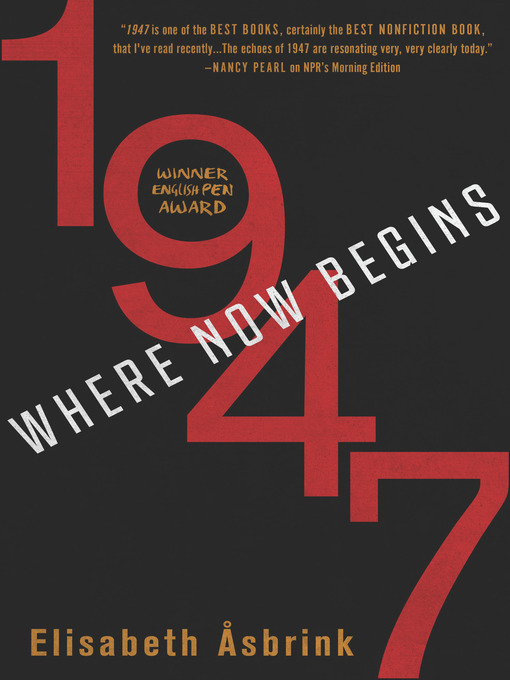
1947
Where Now Begins
کتاب های مرتبط
- اطلاعات
- نقد و بررسی
- دیدگاه کاربران
نقد و بررسی

November 1, 2017
Among innumerable turning points in history, 1947, just two years after World War II ended, is a year worth review. Asbrink's book, translated from the Swedish, makes some of that year's neglected history and high drama tangible and meaningful.With a technique reminiscent of John Dos Passos' "newsreels," the author records events from across the world (Paris, Palestine, New York, Los Angeles, Budapest, Berlin, Delhi, etc.), using the present tense to create a sense of immediacy. During this year, Primo Levi is 28 and living in Turin, and 56-year-old Nelly Sachs is in Stockholm. Christian Dior arouses global grievance with his "New Look," and Arnold Schoenberg creates a new musical form. Unreformed Nazis make their unimpeded way to South America, where they freely publish and deny the Holocaust. The Jewish Irgun fights the British in Palestine. The Grand Mufti of Jerusalem and the Arab League vehemently reject the U.N. partition plan. More than 4,500 displaced men, women, and children aboard the Exodus are turned away from the Holy Land. The Muslim Brotherhood began to flourish as the Marshall Plan took shape. Chuck Yeager flies faster than sound, and Britain, as it departs the subcontinent, carves Pakistan from India. It is a time when the British Empire diminishes and the Cold War flourishes. In an account that serves as the core of her book, the author's father makes his way from deprivation and danger to safety. Throughout the book, Asbrink artfully selects her narratives. Though romantic Anglophiles will not find a report of the marriage of Philip and Elizabeth, the love story of Simone de Beauvoir and Nelson Algren is more intriguing ("they set their own rules for their transatlantic love, beyond convention and the law").A skillful and illuminating way of presenting, to wonderful effect, the cultural, political, and personal history of a year that changed the world.
COPYRIGHT(2017) Kirkus Reviews, ALL RIGHTS RESERVED.

November 15, 2017
When journalist Asbrink was ten, her father left her a letter that was 19 lines long. The first 18 expressed his love; the last sentence said never to pity yourself. When Asbrink writes about 1947, she honors her father and others who disappeared under Nazi rule. Clocks are a preoccupation for the author--they're missing or they don't work or they give contradictory times. During this year, writer Simone de Beauvoir went to the United States and had a passionate affair with writer Nelson Algren. A Swedish fascist created escape routes for Nazi friends. Nelly Sachs and Paul Celan wrote poetry about ultimate loss. Primo Levi's memoirs were accepted by a publisher. George Orwell began work on his masterpiece, 1984. The Grand Mufti of Jerusalem opposed the creation of a Jewish state. For the first time, genocide is recognized as a crime. Asbrink weaves personal and historical stories to show how people migrated across the world, unaccepted in their homelands and unwelcome in their adopted countries. VERDICT This superb book deserves a wide audience. In telling history through disparate voices, Asbrink effectively describes the seas of change, as times change quicker than people do.--David Keymer, Cleveland
Copyright 2017 Library Journal, LLC Used with permission.

























دیدگاه کاربران